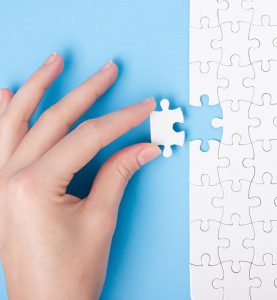After months of dealing with a global pandemic and navigating these uncertain times, many people are just ‘done!’ COVID-19 and the economic hit that has followed, is effecting us in ways that most of us never imagined. The clients that we’ve been seeing are having heightened stress reactions, increased anxiety and depression, and reactivated trauma (after all, what doesn’t reactivate the theme of most trauma — ‘I am powerless!’ like a global pandemic?) I tend to think of us having a fill-switch that kicks in when the liquid in the tank gets too full — similar to the alarm that goes off in a septic tank when the level of its contents gets too high and requires a pump out. Many people right now are living at their fill switch — they are plain old done and have no space left. So what can we do when we hit that place in life?
- Pay attention to your fill switch. If we get to the fill switch and don’t do anything about it, we are bound to detach/check out with behaviours that aren’t usually effective. Detachment is like turning your phone off when you notice your battery level is low. It doesn’t fix the problem! In fact, it can create further problems, like fuelling an addictive behaviour. Detachment can involve things like mindless eating,
 blank stare Netflix watching, video gaming, escaping through sleep, online shopping with money you don’t have, drinking too much, drifting into fantasy with pornography, etc. If you keep an eye on your fill switch you can become pro-active and do more effective behaviours like practicing downtime. Downtime is when we do something recharging or life-giving. It involves a conscious awareness that we’re ‘done’ and validates the surrounding feelings. “I’m just so overwhelmed by everything…” After checking in with the emotions, we can choose something that will be restorative and helpful. Do I need time with someone or by myself? Indoors or outdoors? Physical activity or rest/relaxation? What is something that I know tends to be helpful even if I don’t feel like doing it? e.g. I don’t feel like leaving the house but I know I would feel better if I did.
blank stare Netflix watching, video gaming, escaping through sleep, online shopping with money you don’t have, drinking too much, drifting into fantasy with pornography, etc. If you keep an eye on your fill switch you can become pro-active and do more effective behaviours like practicing downtime. Downtime is when we do something recharging or life-giving. It involves a conscious awareness that we’re ‘done’ and validates the surrounding feelings. “I’m just so overwhelmed by everything…” After checking in with the emotions, we can choose something that will be restorative and helpful. Do I need time with someone or by myself? Indoors or outdoors? Physical activity or rest/relaxation? What is something that I know tends to be helpful even if I don’t feel like doing it? e.g. I don’t feel like leaving the house but I know I would feel better if I did. - Build margin and space. If we find that we’re living at the fill switch, we need to work on building margin and space into our life. This may involve a series of intentional
 choices to do something different and more strategic. If work is a chronic stressor and there’s always a next thing to do, determine when it needs to stop — what time do you need to leave the office/worksite by? Set some limits where needed and possible. This may include reducing your ‘To Do List’ to what can realistically get done in the day. Delegate if and when possible — let someone else help especially when they are offering and capable. Set realistic expectations for yourself and others.
choices to do something different and more strategic. If work is a chronic stressor and there’s always a next thing to do, determine when it needs to stop — what time do you need to leave the office/worksite by? Set some limits where needed and possible. This may include reducing your ‘To Do List’ to what can realistically get done in the day. Delegate if and when possible — let someone else help especially when they are offering and capable. Set realistic expectations for yourself and others. - Take care of your physical health. Being sleep deprived and skipping meals is one of the worst things we can do when we’re ‘done.’ Get some kind of physical movement and activity — walk to do an errand instead of driving, do a stand-up/stretch break once an hour, or go outside and get some fresh air in between meetings.
 Housework, gardening, yard work, walking, playing a game with the kids, or having a quick dance party are all forms of movement and activity. Don’t beat yourself up for not doing any ‘formal exercise’ — we just need to have moderate movement in our lives to keep mobile and healthy. Get your hair done, have a massage, do your nails, dress up in something you feel good in, etc. Eat a variety of foods to give your body what it needs nutritionally. Eat mindfully and regularly to fuel your body and give yourself energy to pull from. Eat at the table and enjoy/notice your meal rather than eating mindlessly in front of the television or on your phone.
Housework, gardening, yard work, walking, playing a game with the kids, or having a quick dance party are all forms of movement and activity. Don’t beat yourself up for not doing any ‘formal exercise’ — we just need to have moderate movement in our lives to keep mobile and healthy. Get your hair done, have a massage, do your nails, dress up in something you feel good in, etc. Eat a variety of foods to give your body what it needs nutritionally. Eat mindfully and regularly to fuel your body and give yourself energy to pull from. Eat at the table and enjoy/notice your meal rather than eating mindlessly in front of the television or on your phone. - Take care of your mental health. Don’t just go, go, go after you’re done, done, done or you may splat against the wall and slide down, down, down! Keep short accounts of your emotions —
 check in with how you are feeling. How was your day/week? Affirm those emotions without judging them or ‘shoulding’ on yourself. ‘I’m so frustrated and upset but I shouldn’t be…’ Our emotions help us to navigate life and give us important information as to how we are doing and what our valid needs are. If we learn to just notice our emotions and see them like ‘warning lights on the dashboard’ we can save ourselves a lot of trouble. Sometimes we think ‘I don’t have time to deal with my feelings…’ and then we stuff them. If we stuff them long enough and hard enough, they will come out sideways or actually push us up to our fill switch and fuel the need to detach. For example, loneliness is our emotional prompt to reach out. If we ignore the feeling of loneliness or judge it, we won’t meet our valid need for connection.
check in with how you are feeling. How was your day/week? Affirm those emotions without judging them or ‘shoulding’ on yourself. ‘I’m so frustrated and upset but I shouldn’t be…’ Our emotions help us to navigate life and give us important information as to how we are doing and what our valid needs are. If we learn to just notice our emotions and see them like ‘warning lights on the dashboard’ we can save ourselves a lot of trouble. Sometimes we think ‘I don’t have time to deal with my feelings…’ and then we stuff them. If we stuff them long enough and hard enough, they will come out sideways or actually push us up to our fill switch and fuel the need to detach. For example, loneliness is our emotional prompt to reach out. If we ignore the feeling of loneliness or judge it, we won’t meet our valid need for connection. - Take care of your spiritual health. What helps your spirit to recharge and become restored? Do you feel more in-tune when you are out in nature? When you are in a quiet place or listening to music? Do you like your hands engaged with a craft or
 creating something with art — maybe writing a song or playing a musical instrument? Meditation and prayer can be powerful practices for spiritual revitalization, as is practicing gratitude and hospitality. Coupled with breathing and noticing what is going on around us in the present moment, we can actually feel more anchored and less scattered. For people with a faith perspective, spiritual health may renew with spiritual disciplines like prayer, journalling, reflective listening, scripture reading, worship practices, spiritual direction/mentoring, singing/music, or small group engagement.
creating something with art — maybe writing a song or playing a musical instrument? Meditation and prayer can be powerful practices for spiritual revitalization, as is practicing gratitude and hospitality. Coupled with breathing and noticing what is going on around us in the present moment, we can actually feel more anchored and less scattered. For people with a faith perspective, spiritual health may renew with spiritual disciplines like prayer, journalling, reflective listening, scripture reading, worship practices, spiritual direction/mentoring, singing/music, or small group engagement. - Pay attention to the whole package. Since we are integrated beings, what happens to us physically does impact us mentally and spiritually, and vice-versa. In Gabor Mate’s book ‘When the Body Says No’ there is extensive research that points toward our physical bodies stepping in to put us out of commission when we aren’t paying attention to the things we need to be caring for mentally, emotionally and spiritually. After years of being a medical doctor and working with addicts in East Vancouver, Gabor Mate noticed that stress and disease are connected. If we don’t manage our fill switch, our bodies will manage it for us — sometimes with a lethal response.




